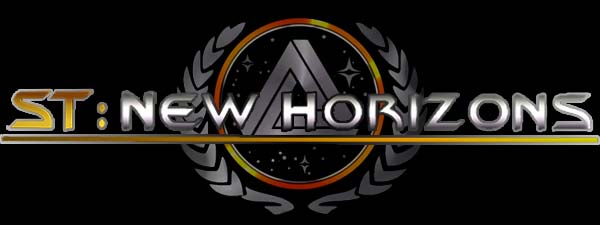
Here's something that I've never done before: a review of a game mod! I don't play mods very often. When I play games, I usually want to play the game that the creators created in order to get a feel for what their intent might have been. For some of the more sandboxy PC games that I play (like Cities: Skylines or the like), I might try some small mods.
There has yet to be an official game quite like Microprose's 1999 release, Birth of the Federation.
For this one instance, however, I'm making an exception because this particular mod fills a very specific niche desire for me that has gone unfulfilled for around 15 or 20 years. The "New Horizons" mod for Stellaris is finally allowing me to play a full 4-x strategy game set in the Star Trek universe. I haven't been able to do that since Star Trek: Birth of the Federation, developed by Microprose for Windows 98!
The creators seem to have been inspired by BotF.
Yes, there have been other Star Trek mods for other games in the past, and there's even some community projects to create spiritual successors to Birth of the Federation (such as Star Trek: Supremacy). The problem is that I've yet to ever see one of these get finished. "New Horizons" for Stellaris is still a work-in-progress, but it is mostly functionally complete and fairly robust. Since Birth of the Federation holds such a special place in my heart, I'm going to take a stab at reviewing "New Horizons" and see how it compares to my personal favorite [official] Star Trek game of all time.
Built on the back of Stellaris
"New Horizons" is, of course, a mod for the PC game Stellaris (developed and published by Paradox). Because of this, it takes advantage of most of Stellaris' strengths, but it is also hamstrung by many of Stellaris' faults.
"New Horizons" makes excellent use of the massive size and scale of Stellaris' maps by featuring a detailed recreation of the canon Star Trek galaxy, and including a surprisingly exhaustive roster of Star Trek races and factions -- all of whom are playable. Yes, of course, the big players like the Federation, the Romulans, Klingons, Cardassians, Ferengi, Dominion, and Borg are all here. As are all the expected ancillary empires like the Gorn, Tholians, Orions, and so forth.
The playable roster is surprisingly vast and exhaustive.
It doesn't end there, though. This mod also features a crap-ton of "aliens of the week" as fully-featured, playable empires. They aren't "minor races" like what we had in Birth of the Federation or the city states of Civilization V or VI. They don't just have one planet and a handful of ships just waiting for a "major faction" to conquer or absorb them. The obvious choices like the Vulcans, Andorians, Bajorans, are all there. The game also features empires like the Sheliak, Anticans, Selay, Caitian, Cheron, Dosi, Hirogen, Kazon, Krenim, Kelpian, and more! If you have a favorite space-facing civilization from any episode of Star Trek (including Gamma Quadrant aliens from DS9 and Delta Quadrant aliens from Voyager), there is a very good chance that it's a playable faction in "New Horizons"... [More]
2c39f87b-9de4-4abc-b74c-781e4f27c822|0|.0
Tags:Stellaris, Star Trek, New Horizons, Stellaris: New Horizons, mod, PC, Steam, 4x, strategy, user interface, space, exploration, war, starship, starbase, warp drive, glitch, casus belli, Star Trek: Birth of the Federation, Star Trek: the Next Generation, Star Trek: Deep Space Nine, Star Trek: Voyager, Star Trek: Enterprise, Star Trek: Discovery, Star Trek: Beyond, Star Trek II: the Wrath of Khan, Star Trek VI: the Undiscovered Country, Federation, Klingon, Romulan, Cardassian, Ferengi, Dominion, Borg, Gorn, Tholian, Orion Syndicate, Vulcan, Andorian, Tellarite, Kazon, Hirogen, Alpha Quadrant, Beta Quadrant, Gamma Quadrant, Delta Quadrant
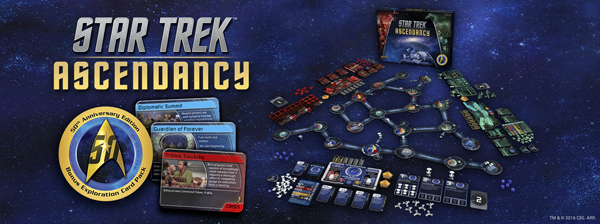
As I had mentioned in my Star Trek: Fleet Captains review, good Star Trek games are few and far between. Perhaps my favorite Trek game of all time is the Windows '98 4-x strategy game Birth of the Federation. BotF, developed my Microprose, was basically a Trek reskin of Master of Orion II. It was buggy, had cheating A.I., suffered from a major memory leak that slowed the game to a crawl after about 100 turns of play, and it didn't include any Original Series ships or technologies. But it did manage to faithfully capture Star Trek's spirit of exploration and discovery by being a game about exploring and colonizing a galaxy.
It wasn't a stripped-down startship combat simulator (Starfleet Command), or a cookie-cutter first-person shooter (Elite Force), or a lazy StarCraft clone (Armada), or an out-of-place dogfighter (Invasion), or a derivative WoW clone (Star Trek: Online). None of those games is terrible. I've played them all, and actually have some rather fond memories with most of them. But none of these games really meshed perfectly with the Star Trek license, and none of them really scratched my Star Trek gaming itch the way that Birth of the Federation did. Apparently, some designers at Gale Force Nine also like Birth of the Federation, because their new board game, Star Trek: Ascendancy, almost feels like a board game version of that classic Trek PC game.
Ascendancy is the first proper 4-x board game using the Star Trek license that I've seen. It certainly blows Fleet Captains out of the water. While Fleet Captains included some token exploration and territory-expansion mechanics as a supplement to the ship-to-ship combat that was the core of the game, Ascendancy is a game that is actually about exploring a procedurally-generated map, colonizing planets, and developing their resources. You can win by conquering other players' home worlds, or by developing your culture up to a specific level.
The final frontier is always in flux
The board of Star Trek: Ascendancy utilizes an interesting and novel modular board. Disk tiles represent planets, systems, and anomalies, each of which is connected by star lanes of varying distances. New systems and star lanes are drawn from a deck as the players explore, and so the board is constantly expanding as you play. It's nothing earth-shatteringly new, but it does have one neat gimmick that I haven't seen in other similar games.
The map will grow and change as the game progresses.
In addition to the board dynamically growing as the game progresses, systems are considered to be "floating" until they become locked in place by being connected to two or more systems via a star lane. This means that leaf systems can be freely rotated around to make room for other tiles to be placed in the play area. I believe this is intended to model the 3-dimensional nature of space. In a more practical sense, it means that the galaxy [map] can (and will) change its shape occasionally, leaving the true distances between locations ambiguous until everything gets locked down. [More]
7b9b6ce0-3004-4c0d-a534-30ff155f91cb|1|1.0
Tags:Star Trek, Star Trek Ascendancy, Gale Force Nine, board game, strategy, 4x, dice, Federation, Romulan, Klingon, exploration, phenomenon, trade, colonization, war, star lane, warp, warp drive, Aaron Dill, John Kovaleski, Sean Sweigart, Star Trek: Birth of the Federation

Discovery isn't the only Star Trek show on TV this fall -- at least, in spirit anyway. September saw the premiere of Seth McFarlane's Trek-clone The Orville. Orville stumbled out of the gates at first with a premiere episode that I really didn't like. But it's been slowly getting better -- or at least, less bad, with each of the first few episodes being substantially better (though still not entirely effective) than the premiere.
A lot of this has to do with a shift in the show's tone. The show was advertised and marketed as a comedy (basically, a televised version of Galaxy Quest), and I went into the first episode with a comedic mindset, and that premiere episode definitely went out of its way to try to tell jokes. That was a problem because the jokes (and by extension the show) just wasn't funny. The focus on comedy and gags also detracted from the serious drama, which was poorly-written, sloppily-executed, and which revolved around a dumb sci-fi MacGuffin. Further, much of the comedy involved stupid pop culture references which are going to quickly become dated; thus, hurting the show's lasting re-watchability if it ever becomes good enough to warrant rewatching.
If you think Star Trek needs more dick and fart jokes --
or more dogs licking their balls in the background, then The Orville is for you.
The problem is that MacFarlane just isn't that good at writing jokes. It pains me to say this because I was a huge fan of Family Guy when it first premiered, and I'll still defend the quality of those first two seasons. But MacFarlane seems to be completely arrogant in his own joke-writing ability, while simultaneously completely dismissive of the audience's ability to grasp the jokes that he seems to think are much more complex and clever than they actually are. Most of these jokes boil down to being fart or sex jokes, and very few work on more than the most juvenile and immature of levels. Perhaps the best example of this is a joke in which the Captain Mercer puts a distress call on the viewscreen. The distressed scientist has a dog in the background who spends the entire conversation licking his balls. It was mildly funny due to its relative subtlety. Yeah, I guess that probably happened occasionally to Captain Archer in Enterprise. Ha ha. But then as soon as the conversation was over, the viewscreen flicks off, and the navigator and helmsman say "Hey, did you see that dog licking his balls?" What little subtlety is gone; joke ruined!
It's like McFarlane thinks he has to remind the audience that there was a joke, and that you should have been laughing, even though the joke wasn't that funny to begin with. This is the same problem that I've always had with laugh tracks in sitcoms: all they do is remind me that the jokes aren't funny. Except McFarlane doesn't use a laugh track, he writes the "hey, there was a joke here. Did you get the joke?" into the script!
"Command Performance" had humor more appropriate for its sci-fi set-up and relationship drama.
The next two episodes, however, seemed to plant their feet more firmly in the territory of genuine sci-fi concepts and character drama, and the show was stronger for it. The execution, however, is kind of hit-or-miss... [More]
70d52091-ba33-4edf-9546-e800ddef74cf|1|1.0
Tags:the Orville, Seth MacFarlane, science fiction, comedy, Union, Moclan, Galaxy Quest, Star Trek, space, exploration, politics, religion, women, gender, gender equality, transgender, equality, futurism, progressive, allegory, straw man, fallacy
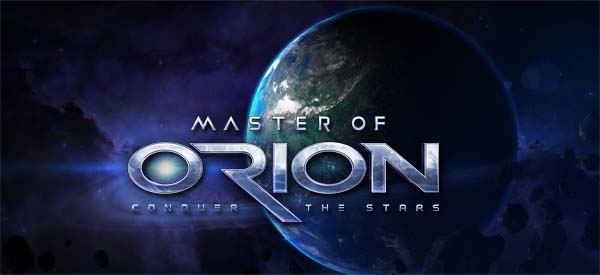
The 2016 reboot of Master of Orion kind of shoots itself in the foot a bit with its own subtitle: "Conquer the Stars". When I play 4x games, I like to feel like I'm really building an empire, managing an economy, and conducting diplomacy. All of those things are present in Master of Orion, but I've gotten a pretty distinct feeling that this is yet another strategy game that falls victim to military rushing being the optimal strategy by far. Master of Orion doesn't really want you to build a civilization and colonize the galaxy; it firmly wants you to do what its subtitle tells you: conquer the stars.
Master of Orion III was kind of shit (it was boring, ugly, and completely lacked personality and substance), but at least it made some effort to be new and interesting. Most noticeably, the galactic map was actually three-dimensional. Sure, this was a navigational and UI nightmare for the human player, but it required players to think differently about how they approached expansion and warfare. At a more fundamental level, MoO3 sought to be a game about macro-management, asking the player to manage a vast galactic empire rather than just a collection of a dozen or so planets. The meat of the game, thus, was intended to be in the mid-to-late stages, as developed empires engaged in epic battles for survival, rather than all the fun and challenge being front-loaded in the early rush to colonize all the nearby planets. It didn't work, but at least it was trying to genuinely innovate the 4x genre.
The new Master of Orion isn't anywhere near that ambitious, and seeks instead to simply bring the original Master of Orion concept (in its simplest form) into the age of high-resolution 3-d graphics. It's a scaled-down, bog-standard space-4x game that borrows heavily from Endless Space and Civilization V. But it is at least a competent one!
Conquer the Stars isn't as big, complex, or ambitious as Master of Orion 3, but at least it's competent.
The galaxy itself isn't very big this time around. Depending on the map's size, there's only a few dozen stars, and most of them only have two or three planets. Unstable star lanes and space monsters can lock you out of exploring certain systems until you research certain technologies or grow your military sufficiently large (respectively). Other than that, exploration is over fairly quickly (especially once you start performing map trades in diplomacy).
Planet-management is also fairly easy. You can assign population meeples between one of three different types of output: food, production, and research. Meeples of different jobs and races have different icons, and unhappy meeples on strike have icons that sit down holding a picket sign. It makes it very easy to see what your population's current status is at a glance. There's just not really much to do with them. You don't have to assign them to work specific buildings, and with only 3 outputs to manage, balancing or specializing isn't that difficult.
All the buildings in the game are also one-time builds that don't serve much function other than to provide flat points of one of the three outputs, or to modify the efficiency of meeples in a particular output category. Buildings that have unique functionality (such as the Spy Center, Gravity Generators, or Interplanetary Administration) are few and far between. The only other thing that you do with your planets is to occasionally terraform them in order to boost your max population and unlock additional slots along each of the output tracks.
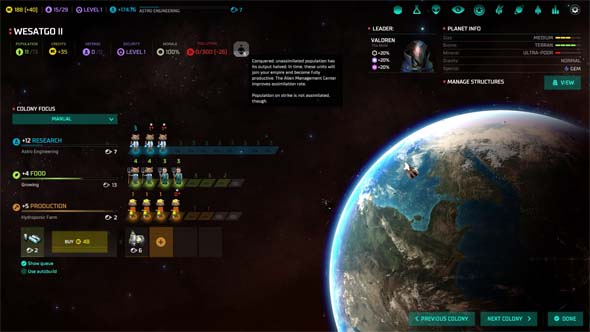
Each point of population is of a specific race, which affects the morale of conquered planets.
The tech tree also feels kind of bland and linear. I would much prefer a tech web along the lines of Civilization: Beyond Earth. Master of Orion kind of goes in this direction a bit by including some techs in which you have to chose which of two different items you want to take when you research certain techs. You can then trade for the other via diplomacy if you want to. It's kind of like the leaf nodes in Beyond Earth, but only some techs have them, and I rarely had to think too hard about which one I wanted... [More]
b529f082-d6e2-4759-8316-2633e3e77143|0|.0
Tags:Master of Orion, Master of Orion: Conquer the Stars, NGD Studios, Wargaming Labs, Steam, strategy, grand strategy, 4x, turn-based strategy, PC, science fiction, space, exploration, expansion, exploitation, extermination, colony, war, Michael Dorn, John de Lancie, Mark Hamill, Alan Tudyk, Nolan North, meeple, Master of Orion 3
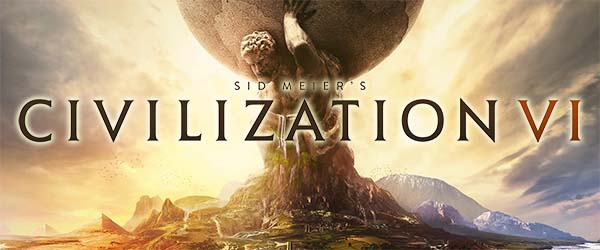
Civilization VI may look very similar to Civilization V at a glance, but once you start playing it, you're going to notice a lot of subtle differences. One of the most immediate differences will be the changes to unit-movement rules with respect to terrain. Units still travel on hexes, and terrain such as hills and forests still slow down movement, just as in the previous game. But this time around, the cost to enter a tile must be paid before entering that tile! This is a small, but significant change of rules that may force you to change the way that you explore the map.
The rewards of exploration are many, and finding these rewards is key to a good start.
Efficient exploration is key to getting off to a good start in Civilization. And a good start is key to success at higher difficulties and in competitive multiplayer. This is still true in Civilization VI. First and foremost, exploration will reveal valuable real estate for settling your first few cities, including resources, coast lines, and natural wonders. An efficient explorer will also be likely to uncover more tribal villages (i.e. "goody huts"), which will grant tech boosts, extra money, free units, or a head start towards founding your own pantheon. Efficient exploring will also introduce you to more city states, and you'll be more likely to be the first player to meet the city state. Being first to meet a city state will grant you a free envoy. This will grant you an immediate bonus depending on the type of city state, and it will put you one step closer to unlocking additional bonuses and becoming the suzerain of that city state.
So now that we've seen the rewards and benefits that await our exploration of the map, let's take a look at those new movement rules and how they'll impact our early exploration... [More]
34003f4c-d37b-4dae-b69d-b6175f32dc49|1|5.0
Tags:Sid Meier's Civilization, Civilization VI, unit, movement, hex, exploration, hill, forest, jungle, river, terrain, scout, warrior, city, city state, suzerain, natural wonder, ancient ruin, eureka, barbarian, encampment, pillage
|

| 12 | | | | | | | 60 | | 11 | | | | | | | 55 | | 10 | | | | | | | 50 | | 09 | | | | | | | 45 | | 08 | | | | | | | 40 | | 07 | | | | | | | 35 | | 06 | | | | | | | 30 | | 05 | | | | | | | 25 | | 04 | | | | | | | 20 | | 03 | | | | | | | 15 | | 02 | | | | | | | 10 | | 01 | | | | | | | 05 |
|